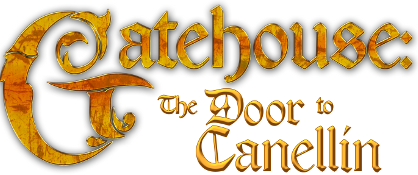First let me start with a disclaimer. These blogs are not necessarily intended as educational. I am neither qualified nor temperamentally suited to "passing on my wisdom", as I'm not entirely sure I have any. If aspiring writers are reading these blog entries looking for sage advice, or the wisdom of the ages, there is something that should be taken into account. I have published a grand total of one short story (in an anthology put out by a small press), and one novel (self-published). The thoughts I post here are my own ramblings about the process I go through to write, and the experiences I have had, and am having, in my one month as a self-published novelist (and 5 years as an aspiring one).
So with the self-deprecating disclaimer taken care of, let's talk editing!
There's an interesting conversation going on over at Kindleboards.com (here) discussing reviews, editing, and indie books. Basically, the gist of the conversation is that it seems many reviewers these days are reviewing indie books on a sliding scale, with less notice being taken of typos and grammatical errors. Or, as has been noted by some commenters to the conversation, some reviewers go out of their way to point out that the indie book they just finished reading has "surprisingly few typos", thus giving praise.
Now, don't get me wrong. I understand how there could be surprise involved there. The indie publishing world has made it easy for anyone to throw some words on a page, minimally edit, and publish an ebook. Literally anyone can do it.
But let me ask this. It's rhetorical, but it goes out to all the indie authors out there. Don't you want your books held in the same regard as traditionally published works? Don't you want people to think of you on the same level as an author published by a major publishing house?
I do. I want to be on the same playing field as the big boys. I don't really feel I am yet, but I want to be.
Indie publishing, in many people's eyes, is the sand lot. Traditional publishing is the big leagues. And I suppose it's true, in some ways. But when I read a book, no matter whether it's published by Random House or Random Dude Off The Street, I hold it to the same standard. If the story is good, if the writing style is one I can enjoy, then I like the book. If there are typos, enough of them to notice... then I notice. And it lowers the quality of the book in my estimation. If there are problems with writing style, I notice these as well. If I leave a review, I leave an honest one. I don't want to be patronized, and I don't want to be patronizing.
I'm relatively confident in the editing of The Door to Canellin. Don't get me wrong, I've read through it and noticed a few typos, which were corrected for the paperback. There might even be a couple that I missed. And if reviewers notice them, and they detract from the story, I would expect them to knock me down a peg or two! To quote myself from my recent post in the Kindleboards thread I mentioned, "If we don't hold ourselves to that standard, we can't be surprised when people think of us as 'vanity' books."
Take for an example one of my favorite books, The Birth of Flux and Anchor, by Jack Chalker. I've read my dog-eared copy dozens of times. I love this book. In the book, I have noticed eleven different typos over the years. Repeated words, misspelled words, dropped words, even a few grammar errors. It doesn't take away from my enjoyment of the book, but it always makes me think, "Wow, they must have rushed this one to press."
And that's really where I'm going with this. I don't rush. I did, back when I first wrote the rough draft of The Door to Canellin. But over the years, I've slowed down, polished, re-written, and worked very hard to make it the best possible product I could. I could have self-published quite some time ago. I chose to hold off. Not just in the hope of finding a mainstream publisher, but also to polish, polish, polish!
So, again... not that I've got a lot of sage wisdom, but here is my polishing technique.
1. Write a couple of chapters
2. Hand those off to someone else, preferably someone with a critical eye, and preferably several someones
3. Write a couple more chapters
4. Get back previously written chapters, most likely with a lot of colored ink on them, and hand off new chapters
5. Edit. Proofread over the top of the editing. Revise and re-write.
6. Repeat, often, and when you've finally gotten it to the point that you're satisfied, repeat at least 3 or 4 more times. Because just being satisfied isn't good enough.
Is my book professionally edited? It depends on your point of view. I feel as if I edited very professionally. And one of my editors is a college instructor, and so has plenty of experience proofreading and grading. But no, I did not hire someone to edit The Door to Canellin. And yes, I'm certain that there are still things in there that have been missed. Absolutely certain of it. So before you upload your book to Amazon, remember this: I've been editing, revising, and working on The Door to Canellin and The Door to Justice for 5 years!! And I'm still certain there are mistakes that slipped through the cracks.
And if there are, I'd like to think that I'd be held to the same standard as, say, the latest Dean Koontz, Orson Scott Card, or Brandon Sanderson novel. Because I want to run with the big boys.

No comments:
Post a Comment